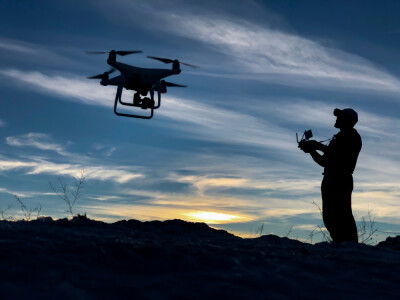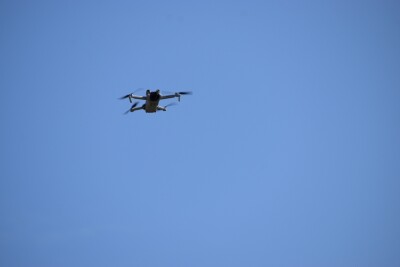181,000 is a big number. Odds are, if you had 181,000 dollars, you’d be a fairly happy person. But how happy would you be with $181,000 when you could and probably should have millions?
Such is the predicament the FAA finds itself in with their recent announcement that over 181,000 drone aircrafts have been registered since the Unmanned Aircraft Systems (UAS) Registration system for model aircraft operations opened on December 21st. Granted, we’re not even a month removed from when the system went online or halfway to the February 19th, 2016 deadline, so there will be plenty more registrations coming over the next few weeks. Plus, we have to remember recreational users only need to register themselves and not their individual drones. Someone who has a handful of DJI Phantoms only needs to register once, just like the person who only has one. That means just because an estimated 700,000 drones were bought in 2015 alone doesn’t mean we can or should expect to see registrations for all of those purchases.Nonetheless, it’s clear that registrations so far are only a fraction of the total number of recreational flyers out there. That’s especially telling because the $5 registration fee is only being refunded for the first 30 days, which has likely gotten a lot more registrations to come in early rather than hold out until we get closer to the deadline. I’ll be very interested to see what the new registration numbers look like starting when the refund period ends on January 21st.In an odd coincidence, 181,000 is just over the 180,000 model aircraft enthusiasts which are represented by the AMA (Academy of Model Aeronautics), and their current recommendation to hold off on registering is something that’s going to come to a head very soon. Seeing as how they’re recommending their users wait to register “until advised by the AMA or until February 19”, one suspects they’ll have something to say or announce before that deadline.Let’s give the FAA credit for what they’ve pulled off here though. The simple and easy process hasn’t seen many technical problems, and that’s saying something for a government agency. After all, signing up for Obamacare has been such an issue for some people that there are entire Facebook pages devoted to the frustrations and struggles that individuals have had to endure.Logistics aside, the registration process itself has encountered a fair share of criticism. The complaints of the AMA are one thing, but not only does the FAA have to deal with industry critics around this process, now they’re literally being taken to court over it. A recently filed lawsuit is specifically challenging the legality of the FAA issuing rules and regulations regarding model aircraft, and that sort of specificity is key. Going after the FAA to say they have no right to regulate the airspace drones fly in is a question of jurisdiction that the judiciary sometimes avoids, but going after the nuance around that jurisdiction is a clever tactic.The precedent that could be set here is huge for the commercial space. If this lawsuit is pursued all the way it could open the door for other similar lawsuits that go after a specific interpretation of the FAA’s jurisdiction as it relates to how they’re trying to control commercial drone operators and operations. In fact, this could compel an especially savvy commercial operator or company to file their own lawsuit before the new comprehensive set of regulation around commercial drone operation is announced later this year.Lawsuits are a perfect illustration of an “us vs. them” mentality, and that’s been a feeling which has permeated online chatter since the process was announced. In some ways that’s rather unfortunate, because a spirit of cooperation was alive and well between the FAA and the industry as a whole when the FAA announced the joint task force to develop recommendations for a registration process. Granted, not all of the recommendations the task force made were enacted, but that’s only part of the reason we’re seeing such resistance to the system that has been created.Getting into an argument about how things could or should be isn’t especially helpful, and with this first wave of registrations complete, we should focus on what such realities mean for the present and future. What does this number of registrations tell commercial users about recreational operations, the FAA and the safety of our skies?Well, first and foremost it tells us there are still going to be plenty of unregistered users out there. Incidents like the recent one on the ski slopes of Italy remind everyone of what can happen when operators aren’t focused on safety, but that’s something which is squarely on an uninformed or uneducated user. The current registration process does little to ensure that an operator is informed and educated around how they can and should be flying, but that’s a whole separate issue.The most important thing to note here is the FAA’s reaction. In the statement announcing the current number of registrations, FAA Administrator Michael Huerta said this was just the beginning, and his focus was going to be around making sure everyone was aware of the requirements. Frankly though, the FAA did an especially good job around getting the word out. It was likely a point he focused on because he didn’t want to dwell on what could easily be construed as silent resistance to the new rule.When the new comprehensive set of rules for commercial drone regulation is finally rolled out, would the FAA react in a similarly restrained manner if only small percentage of drones are registered? That’s really not a fair comparison since the number of recreational and commercial users are vastly different, but it’s an interesting barometer nonetheless. If nothing else, it’s proof that when the final word does come down from the FAA, commercial operators will have options. Registering as they’re supposed to, filing a lawsuit and simply waiting to see how things develop are at least three of them.Once the deadline hits in February we’ll need to keep a close eye on what actions the FAA does or does not take for recreational operators who haven’t registered and get caught. It’s one thing to say those who don’t comply will be “subject to civil and criminal penalties”, but it’s quite another to see and realize what those penalties look like and cost.Subscribe
The information you submit will be stored and used to communicate with you about your interest in Commercial UAV News. To understand more about how we use and store information, please refer to our privacy policy.
January 11, 2016
181,000 Recreational Drone Registrations and Counting















Comments